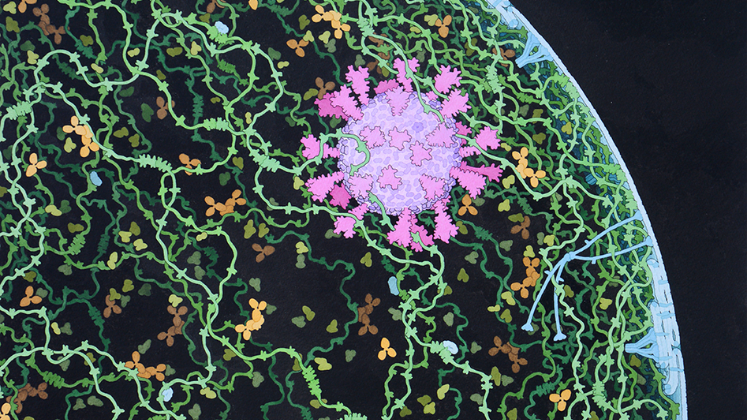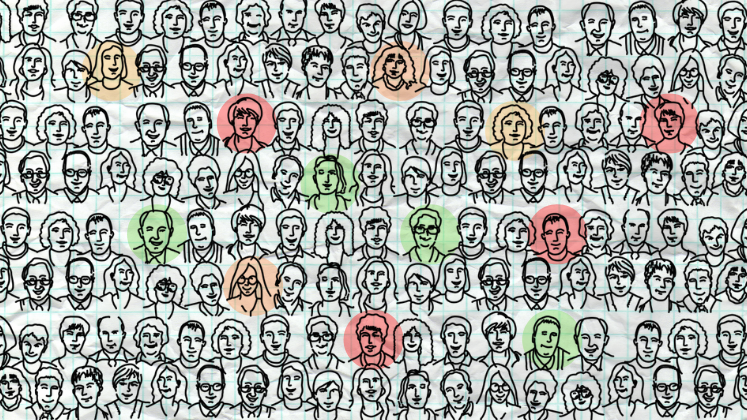Early career researchers have both been the most directly effected by the COVID-19 pandemic and responsible for some of the most innovative responses to it. Reporting on findings from the Harbingers-2 study, Dave Nicholas discusses how the international cohort followed by the study has adapted to an emerging ‘new scholarly normality’.
Writing about Harbingers-2 in 2020 – a longitudinal project to qualitatively trace the impact of the COVID-19 pandemic on Early Career Researchers (ECRs) – predictions about this cohort were dire. The possibility of a ‘lost generation’ of researchers who were highly vulnerable to the impacts of COVID-19 as they lacked job security and status was real. Conversely, there was also the prospect of a pandemic opportunity, to fast-track a change in research culture, especially in regard to openness and social media.
Almost two years on, with the conclusion of the project in sight, we have some answers. At the beginning of the study period, lockdowns wrought havoc with ECRs’ work-life and scholarly behaviours. However, there is an increasing semblance of normality returning to the academic world, albeit with the exception of China, where some of the strictest epidemic prevention and regulation policies in the world continue. This new ‘scholarly normality’ has been shaped by the pandemic and is rapidly becoming embedded in the scholarly enterprise.
Digital and Remote
The most acutely felt feature of this new normality is the accelerated shift to a digital scholarly world, which has at its heart online or at least hybrid practices. ‘Sheltering at home’ may no longer be required in most countries, but working remotely has become standard practice. Whilst on-site teaching has been resumed, distance instruction via digital platforms is implemented in parallel, with hybrid classrooms becoming the rule, rather than the exception.
In addition, remote meetings are now a normative way of keeping up with colleagues, communicating and collaborating. Even virtual conferences, often regarded as less conducive to networking than face to face ones, are appreciated because of their cost- and time-saving benefits. Although, it is hybrid conferences, seen as offering the best of both worlds, that are the preferred option, with the exception of French ECRs represented in the study.
Pandemic exceptionalism has proven that the long-coming transformation of the scholarly undertaking into a (mostly) virtual enterprise is not only justifiable but also doable. However, it is not without tradeoffs, for example: working from home. The flexibility in time-management that it afforded, particularly appreciated by parents of small children, and the ability to do a lot of desk work (paper publishing) were regarded as a godsend by many ECRs. After all, with researchers socialised from the outset of their careers that the very mainstay of scholarly success, indeed, the key to the entrance to the academic world, is the swift building up of a good publishing record, anything that advances their efforts to achieve this goal is more than welcome.
Some of the interviewees did complain that it was “hard to concentrate whilst children are screaming downstairs”, and laboratory- and field-based research has inevitably been disrupted during lockdowns and bans on travel. However, even ECRs whose research suffered could and did find ways of sidestepping some of the problems, learning to appreciate the benefits of doing things differently, as exemplified by some of them opting for remote data collection, instead of the more time-consuming in-person research. As one medic put it:
“We have come up with really novel ways to collect data that we never would have. And so, I think some of that will continue; it’s opened up a kind of a ‘world of possibilities’ there, even devices that are being manufactured to promote remote data collection…”
In contrast, the French experience points to a class divide, with seniors working from the comfort of their homes, whilst juniors, as the work horses of the scholarly undertaking, have to show up in person. Another problem is that of isolation, reported to be one of the main effects of the need to work from home during lockdowns, indeed, still reported by ECRs in China, where many areas are under lockdown and travel bans remain widespread. However, once working from home becomes a matter of choice, rather than an externally enforced obligation, it became less problematic for our participants. ECRs unanimously believed that the move to online work, with all that it meant heavier workloads because of the onus to learn new skills and implement organisational changes, is in fact the silver lining to the pandemic cloud.
Reconnecting with Public Engagement
Another outcome of the pandemic has been the greater importance that ECRs accord to public engagement. A trend spurred by an increased interest in understanding how research is done and how it can help overcome the life-changing disruptions incurred by the virus. This was especially the case for Spanish ECRs many of whom reflected on the importance of building public support. Beyond a renewed focus on outreach, ECRs are more cognisant of the importance of scientific integrity and the inherent link between rigorous research and public scrutiny. This was tied to their endorsement of using pre-print servers to faster disseminate papers relevant to COVID-19. In turn, they worried about indiscriminate reliance on findings that had not been peer-reviewed.
Interestingly, the move to the digital has also substantially increased ECR endeavours to obtain digital visibility and promote themselves and their work. As our Polish interviewer explained:
“ECRs are taking greater care of their ‘business cards’ on the web, e.g., profiles and accounts on various media/services/platforms, such as ResearchGate.”
Re-assessing the academic vocation.
Returning to the fears that defined the early stages of the pandemic, have ECRs turned out to be a lost generation and jumped ship? Our evidence indicates the opposite. Yes, the pandemic provided time to reflect on career paths as this life scientists did:
“I think that this idea of the time is limited and there’s only so many hours and they don’t match up with all the things that I want to do. So, I need to make choices and work on the things that I want to work on, but also make time for important things like family and not work activities. And I didn’t appreciate that as much before.”
But in general, only a relatively few interviewees came to the conclusion that they wanted to change track. When participants did complain about their lot, it was mostly in countries where pre-existing precarity compounded with the effects of the pandemic. Thus, in France, where a relatively greater percentage of ECRs left academe, they cited a long list of problems they already faced pre-pandemic – the prevailing scarcity of tenured positions, budget cuts and the reforms of the Higher Education Ministry, which rendered their terms of employment and prospects more precarious.
International politics also put pressure on ECRs, with Chinese researchers describing a sense of isolation and an interruption of their ties with their colleagues in the wake of the strained relationship between the US. Similarly, the Ukraine conflict is having a comparable isolating effect on Russian ECRs.
The one exception is, surprisingly perhaps, the UK, where more than one-third of the ECRs had either left for other jobs or were thinking of doing so. It seemed that going through the pandemic had led to an evaluation of their work/life balance, or led them to believe they should do something more worthwhile.
Finally, what probably stood out aside from the rapid march to the digital and increased home working, was the resilience and perseverance shown by most ECRs in the face of the pandemic, and this explains why just 5% of our panel left after two very tough years. Not so much the lost generation, more like the resilient and virtual generation. ECRs just kept ‘chugging’ along, working, overcoming obstacles, innovating – i.e., doing whatever they needed to do to continue down their career paths.
We need to reflect long and hard as what ECRs told us, after all, they are on the frontline, deeply committed to the scholarly enterprise and involved in all its various aspects, which renders their appreciation of the impacts of the pandemic, and the changes that will remain in its wake, well-worth listening to.
You can read all of Dave’s posts including others on the findings of the Harbinger projects here. Findings of the Harbingers-2 project have also been published in a recent paper for Learned Publishing, Choosing the ‘right’ journal for publication: Perceptions and practices of pandemic-era early career researchers.
Acknowledgement: The Harbingers-2 project is part of a research collaboration involving CIBER Research and the University of Tennessee Knoxville and is funded by the Alfred P. Sloan Foundation. The other researchers working on the project and have contributed to this blog are: Abrizah Abdullah (Malaysia), Suzie Allard (US), Chérifa Boukacem – Zeghmouri (France), David Clark (UK), Eti Herman (Israel), Hamid R Jamali (Australia), Blanca Rodríguez Bravo (Spain), Galina Serbina (Russia), David Sims (US), Marzena Świgoń (Poland), Carol Tenopir (US), Anthony Watkinson (UK) and Jie Xu (China).
The content generated on this blog is for information purposes only. This Article gives the views and opinions of the authors and does not reflect the views and opinions of the Impact of Social Science blog (the blog), nor of the London School of Economics and Political Science. Please review our comments policy if you have any concerns on posting a comment below.
Image Credit: Avi Richards via Unsplash.








